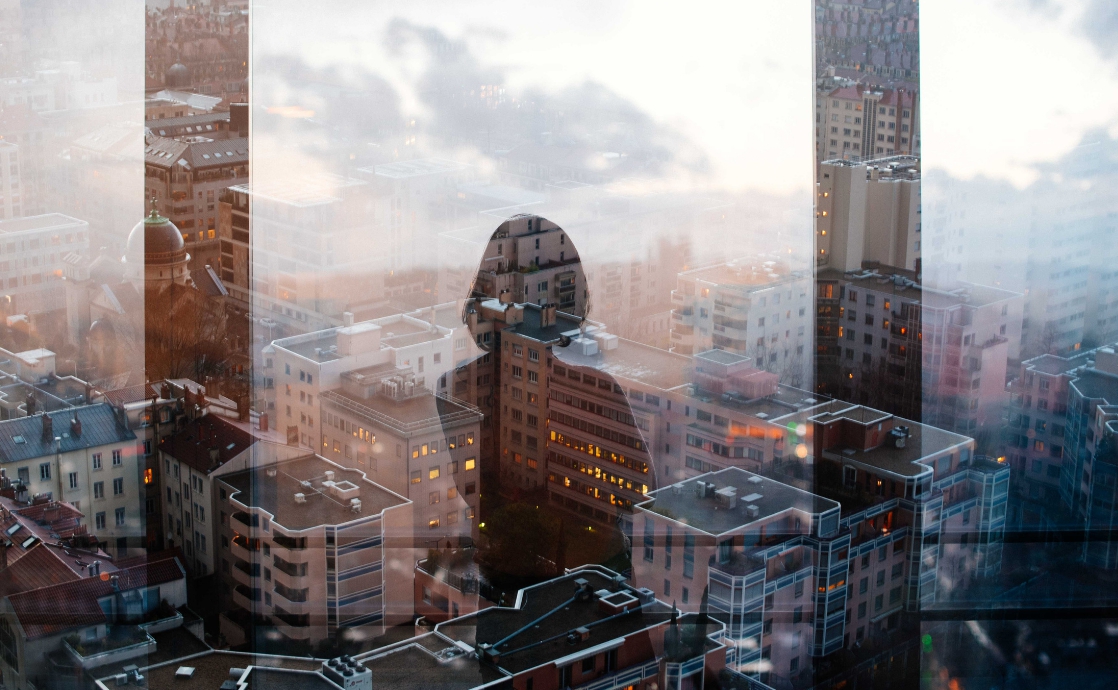The views expressed in our content reflect individual perspectives and do not represent the authoritative views of the Baha'i Faith.
What holds us back from detaching ourselves from the things of this world — attachment to our china? Furniture? Places we hold dear? Clothes? Music, book, or movie collections? Photos? Art? Bank balance?
Do you have strong feelings about inanimate objects, souvenirs, scrapbooks, or other evidence of your own achievements or goals?
RELATED: How Much Do We Really Need to Feel Wealthy?
Recently a friend confessed to a group of us that when her mother passed away, she couldn’t bear to give away anything her mother had owned — not even a bobby pin. Then, ten years later, she tried on one of her mother’s jackets, and found in a pocket a half stick of old gum, crumbling, dissolving into dust. She couldn’t even throw that away, at least not yet.
While the chewing gum example would not be my own particular test, it led me to think about the human condition and what ties us to this world and its trappings. It made me ask “Why is it so hard for some of us to detach ourselves from things?”
The central figures of the Baha’i Faith have many words of guidance about the pitfalls of such material attachments, as exemplified in the following quotations:
Baha’u’llah, the prophet and founder of the Baha’i Faith, wrote “In earthly riches fear is hidden and peril is concealed.”
The Bab, Baha’u’llah’s predecessor and herald, said “… pride not thyself on thine earthly possessions, inasmuch as what God doth possess is better for them that tread the path of righteousness.”
Abdu’l-Baha, the son and successor of Baha’u’llah, said “Content thyself with but little of this world’s goods!”
I’m not a hoarder, I affirm, finally sorting through boxes of old graduate school notes and miscellany for which I never found any place in my cluttered house. Well, OK, maybe a packrat. But the organizing, the deciding, the letting go — it’s all too hard. I do love cleanliness and order, but better to think about the priorities of the moment — papers to grade, bills to pay, meals to make, poems to write. The rest can wait — and accumulate.
So, in our home, not having the time to actually take care of everything we own, my husband and I eat with tarnished silver and save the various things we have collected — clothes and costumes, art supplies, papers, books, photographs, and hundreds of other things for we might “need” someday ….
The job of one’s final years, says my friend Rhonda, a hospice nurse, is to realize what’s truly important, to grasp the spiritual significance of life and the great beyond and to detach ourselves from our “stuff.” “It’s a hard process,” she says, “and it takes time.”
I muse on how I’ll probably be around for a really long time, during that process – and yet, when I travel, I hardly think about, much less yearn for, my “stuff.” That causes me to ask the question, what makes us so comfortable being surrounded by and complacent about the plethora of material things at home, and so interested in the acquisition of new ones?
The Baha’i teachings shed light on this subject. Abdu’l-Baha, in various talks he gave in Europe, said:
You see all round you proofs of the inadequacy of material things — how joy, comfort, peace and consolation are not to be found in the transitory things of the world. Is it not then foolishness to refuse to seek these treasures where they may be found? The doors of the spiritual Kingdom are open to all, and without is absolute darkness.
Material civilization is like the body and spiritual civilization is like the soul. Body without soul cannot live.
If material anxiety envelops you in a dark cloud, spiritual radiance lightens your path.
So even if we’ve embraced a spiritual path, we may find ourselves caught up in the culture of materialism around us, assuming that the life we know and practice is the life given to us and that we don’t have to look much further.
The world is full of beauty and diversity, offering us the potential for rich experience in so many ways, yet perhaps to put it into context, we might contemplate this verse sent by Baha’u’llah to Napoleon III:
Rejoicest thou in that thou rulest a span of earth, when the whole world, in the estimation of the people of Baha, is worth as much as the black in the eye of a dead ant?
To me that seems like a dramatic analogy, but then, perhaps I haven’t attained the spiritual perspective to be able to discern just how different the spiritual and material worlds are.
While traveling in the West, Abdu’l-Baha often expressed discomfort over the lack of spirituality he perceived:
Mankind is submerged in the sea of materialism and occupied with the affairs of this world. They have no thought beyond earthly possessions and manifest no desire save the passions of this fleeting, mortal existence. Their utmost purpose is the attainment of material livelihood, physical comforts and worldly enjoyments such as constitute the happiness of the animal world rather than the world of man.
In light of that focus on the material over the spiritual, on the temporary over the permanent, Abdu’l-Baha gave us all a warning:
These few brief days shall pass away, this present life shall vanish from our sight; the roses of this world shall be fresh and fair no more, the garden of this earth’s triumphs and delights shall droop and fade. The spring season of life shall turn into the autumn of death, the bright joy of palace halls give way to moonless dark within the tomb. And therefore is none of this worth loving at all, and to this the wise will not anchor his heart.
We face a paradox here, as we are given our life in this world to enjoy, and are encouraged by the Baha’I writings to partake of the good things we have to eat, to care for our homes and refurbish them, and not to be monastic or ascetic in our lifestyle. The secret perhaps lies in that one admonition – not to “anchor our hearts” to that which will perish. Abdu’l-Baha explained:
O ye loved ones of God! Know ye that the world is even as a mirage rising over the sands, that the thirsty mistaketh for water. The wine of this world is but a vapour in the desert, its pity and compassion but toil and trouble, the repose it proffereth only weariness and sorrow. Abandon it to those who belong to it, and turn your faces unto the Kingdom of your Lord the All-Merciful, that His grace and bounty may cast their dawning splendours over you, and a heavenly table may be sent down for you, and your Lord may bless you, and shower His riches upon you to gladden your bosoms and fill your hearts with bliss, to attract your minds, and cleanse your souls, and console your eyes.
RELATED: Seeing Beyond Materialism Into a Spiritual Reality
Putting this perspective into practice and experiencing the “heavenly table” may take practice and diligence; it may involve utilizing the tools of prayer and meditation, reading spiritual writings, engaging in deep discourse that is not just about materialistic concerns, and helping humanity and the world. It might even include contemplation on how our culture is swept up in a crisis that we ourselves might help alleviate.
The Universal House of Justice, the democratically-elected leadership body of the world’s Baha’is, wrote:
It is not surprising to find at the very heart of the current crisis of civilization a cult of individualism that increasingly admits of no restraint and that elevates acquisition and personal advancement to the status of major cultural values. The resulting atomization of society has marked a new stage in the process of disintegration …
Do we think about how our individual behavior might impact this process of disintegration or reintegration? Do we take time to analyze this and perhaps even change our ways? The Universal House of Justice continued:
One of the signs of a decadent society, a sign which is very evident in the world today, is an almost frenetic devotion to pleasure and diversion, an insatiable thirst for amusement, a fanatical devotion to games and sport, a reluctance to treat any matter seriously, and a scornful, derisory attitude towards virtue and solid worth.
Most of us living in the current times probably partake of some of what that passage refers to, yet the behaviors are perhaps so normalized that we can’t even see how they reflect a civilization that needs rehabilitation — and that our individual choices might have an impact in a larger sense than we realize.
When I showed my friend a draft of this essay, she finally did throw that old half-stick of gum away.
OK, so maybe now that I’ve thought about it, and written about it, I can finally see the spiritual value of sorting through the stuff that has accumulated, one box or pile at a time, and deciding what to do with the contents. What about you?
You May Also Like
Comments

















By the way, I may have thrown out the old gum but I have a long way to go ... in letting go. ?